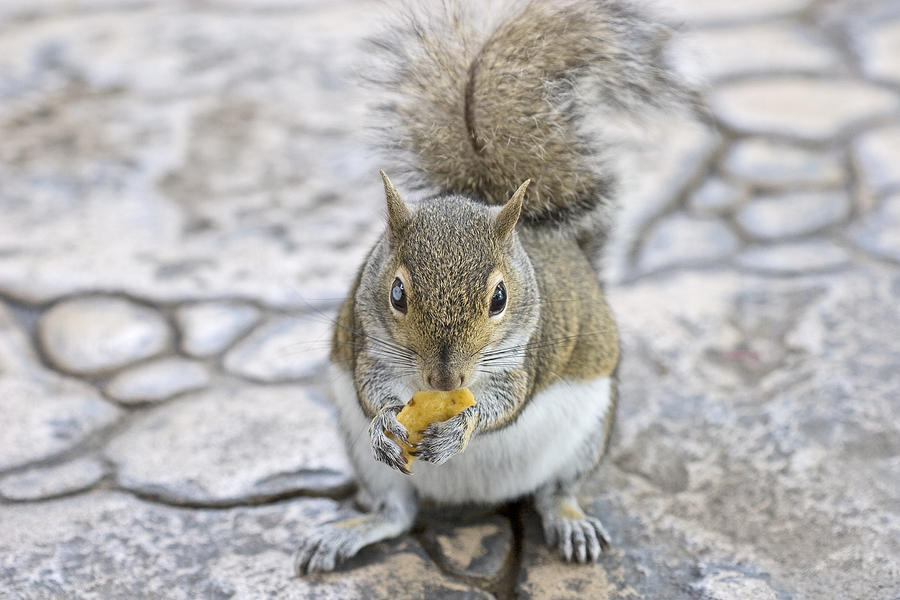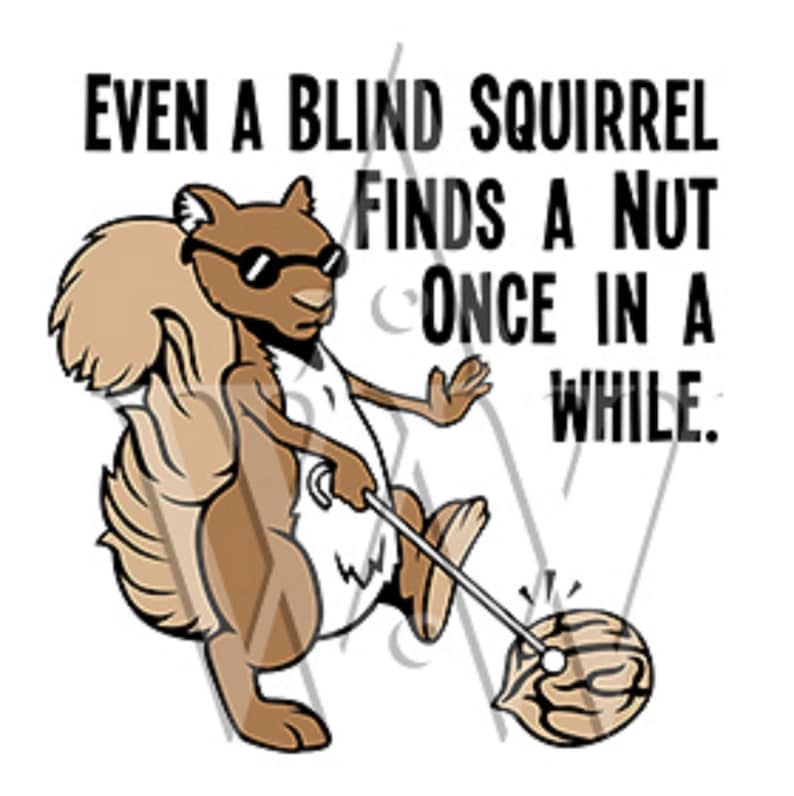

Given the meaning of this expression as “even an unreliable person sometimes succeeds,” it’s ironic that squirrels don’t actually rely on sight much to find food. The science behind how squirrels find buried food Instead, it’s used to encourage people to keep trying until they succeed or have a streak of good luck. This expression means that everyone succeeds sometimes but doesn’t imply scorn. This expression still implies that succeeding at something occasionally isn’t very special, but it does so in a way that uses no ableist language at all because it’s talking about clocks that don’t work instead of using a disability as a synonym for failure and unreliability. Because each day goes through the cycle of hours twice, even a clock that has no batteries will still end up pointing to the correct time twice a day. Even a stopped clock is right twice a dayĪ clock face has 12 hours printed on it, with a minute and hour hand that point to the current time. However, this version of the saying is unfortunately still ableist. In this expression, the squirrel has been replaced by a pig and the nut by an acorn, but otherwise nothing has changed. Even a blind pig can find an acorn once in a while “Even a blind squirrel finds a nut once in a while” isn’t the only expression in town. Similar expressions to “even a blind squirrel finds a nut once in a while” These dialogues show other examples of a person who’s generally unreliable occasionally succeeding at a task.Īs you can see from the last example especially, it’s actually a pretty mean expression to use. Even a blind squirrel finds a nut once in a while, huh?”

In fact, it says you’re so far from impressed that you think they must have succeeded through sheer chance because they’re usually completely unreliable. To make it explicit, though, this is an expression you can trot out to show that you’re not impressed by somebody doing something.

#Blind squirrel how to
How to use “even a blind squirrel finds a nut once in a while”īack to the expression in question, it should be pretty clear by now how to use it in a conversation. To be on the safe side, and to avoid inadvertently insulting blind individuals, it’s better to use “even a stopped clock is right twice a day,” which is explained below. Of course, that’s probably not the case, but if you use this saying, you run the risk of people assuming you’re ableist. In this case, the expression contains some pretty ableist language, assuming that blindness is such a debilitating disability that even squirrels can’t be successful and survive if they’re blind.Īlthough blind animals probably do have shorter lifespans, the problem is that using this kind of language also implies you feel the same way about blind people. Let’s take a brief digression to talk about the ableism at the heart of this expression.Ībleism, if you’re not familiar with the word, is discrimination against people with disabilities. Unfortunately, this is where “even a blind squirrel finds a nut once in a while” runs into trouble. In this expression, the word “blind” is used to show unreliability and accompanying surprise when someone (squirrel or person) does succeed. Others are not so great and might struggle to accomplish anything at all for a variety of reasons. Some people are successful squirrels, finding metaphorical nuts with ease as they finish assigned tasks. On the other hand, squirrels that struggle to find nuts aren’t reliable. This means that the most successful squirrel is the one that can most easily find nuts. As a result, a squirrel who can’t find nuts can’t eat and may die. The saying is ableist, so it’s better to use “even a stopped clock is right twice a day” instead.Īt the core of this idiom is the fact that squirrels eat nuts. “Even a blind squirrel finds a nut once in a while” is an expression used to say that even an unreliable person can succeed sometimes and that succeeding once doesn’t prove someone is reliable. What is the meaning of “even a blind squirrel finds a nut once in a while”? Today, we’ll take a look at a different animal-related idiom, “even a blind squirrel finds a nut once in a while.” Ever seen a pig in a poke? How about a fish out of water? Told somebody that a bird in the hand is worth two in the bush?

What do you get when a squirrel walks into a tree? An expression with unfortunate implications.Įvery language has its own unique turns of phrase that describe everyday things in figurative, idiomatic language.Įnglish, as we all know, is no exception.


 0 kommentar(er)
0 kommentar(er)
